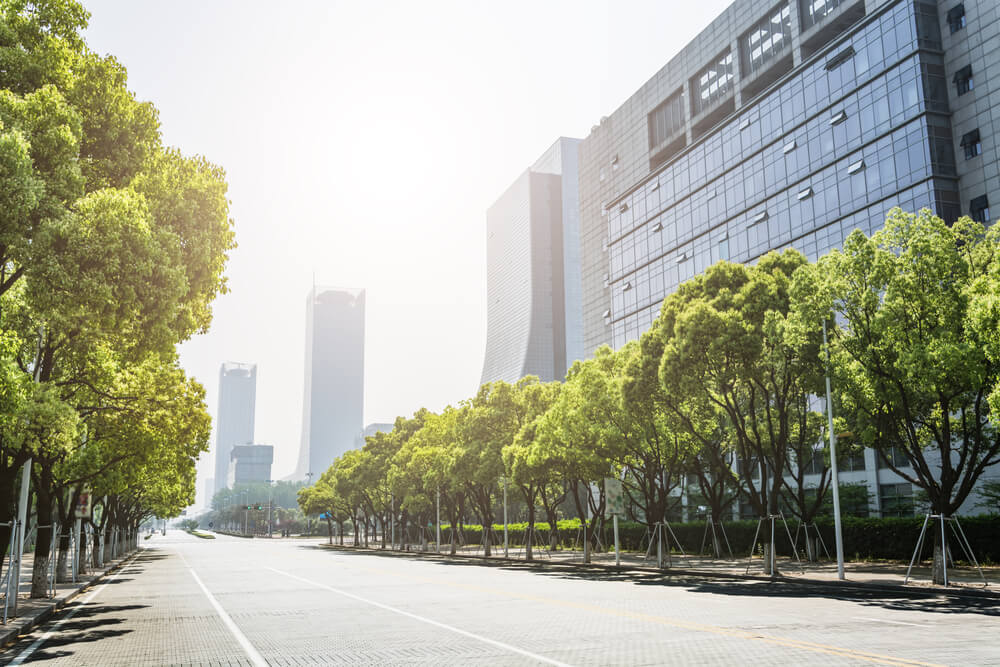There is health in trees and a narrative in sewage. That is the double story coming out of the Christina Lee Brown Envirome Institute at the University of Louisville.
In Louisville, where the air quality ranks among the worst in Kentucky, the Envirome Institute is planting trees at a near manic pace, but it isn’t planning to wait years for the first payoff.
There is scientific purpose and a plan, and even the federal government is involved because, as Theodore “Ted” Smith, director of the institute’s Center for Healthy Air, Water and Soil, told me, the tree-planting project, called Green Heart, is also a fully fledged clinical trial of the type normally used to assess the effect of medicines.
“Actually it’s a drug trial of sorts, except the drug is trees and bushes. You could go to clinicaltrials.gov, where all the clinical trials are listed, and under ‘drug,’ it says ‘trees,’” Smith said. “We’re taking very seriously the need to empirically demonstrate what the value of trees, bushes, greenery, nature is; what is the basis of the connection of exposure to green places and the improvement in human health.”
People living in four south Louisville neighborhoods where trees are being planted will be monitored against a control group in neighborhoods that aren’t being planted and surrounding Jefferson County. The project’s stated purpose is “testing if increasing green space in a neighborhood improves air quality and human health with the goal of developing a ‘greenprint’ for creating healthier neighborhoods.”
Aruni Bhatnagar, the institute’s director, told me that they chose to study the heart because most people die of cardiovascular disease. He said 8,000 to 10,000 trees are being planted in every available space in Louisville: open land, along roadways, and anywhere that will support trees.
The trees are already of substantial size — 15 feet to 20 feet in height — when they are transplanted in Louisville, which also has an urban blight problem. They’re planting evergreen trees because they have year-round foliage, increasing their effect.
Smith said, “We’re very hopeful that we’ll be able to shed some light on just what are the benefits of trees. Maybe it’s cooling: There are a lot of people who are concerned about heat issues in cities. We’re concerned about pollution. As a research institute, we’ve had a long track record in working on exposure to pollutants. That is one of the functions trees perform for us.”
Like all scientific institutions, said Bhatnagar, the Envirome Institute felt it should swing into action to help with COVID-19. It is doing so with a program monitoring Louisville’s sewage to determine patterns of infection and to bring these to the attention of health authorities. The wastewater is sampled at 16 locations and analyzed in the institute’s own labs to find the COVID-19 penetration.
These samplings provide a schematic. Initially, researchers found higher infections in affluent parts of Louisville. But over time, infections spread to the city’s disadvantaged and low-income neighborhoods, where they increased dramatically.
Overall, according to Smith, the wastewater monitoring will lead to a comprehensive understanding of the health anatomy of Louisville, providing data that could have a big effect on the future health and well-being of the city and, if adopted as a general part of urban health analysis, much of the world. “There’s gold in those sewage pipes,” he quipped.
Louisville philanthropist Christina Lee Brown has been working with health activists across the world on a whole-health — physical, mental, economic, spiritual — concept for living. In the quest for sustainable, livable, enjoyable environments, Brown works closely with Britain’s Prince Charles, who has similar goals and has invested heavily in this harmony.
“We encourage people to see the interconnected nature of all the forms of health and how they reinforce and support each other,” Brown said.
Trees are not just for climbing, and sewers are talkative.

 Follow
Follow
Leave a Reply